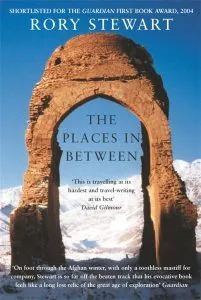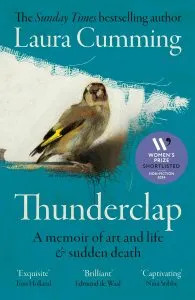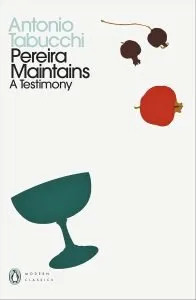Summer reading?
The newspaper culture pages have been full of recommendations for summer reading. Let me add my two-pennyworth on books I’ve recently particularly enjoyed reading or re-reading.
 I’ve just devoured Rory Stewart’s Politics on the Edge (in the US, How Not to Be a Politician: A Memoir). Though I’m rather glad I left it until after the election — it would have been rather too depressing a read had the Tories still been in power! But the book of his that I’d recommend to anyone who hasn’t encountered it before — and I only read it a few months ago — is his astonishing The Places In Between. “In January 2002, Rory walked across Afghanistan — surviving by his wits, his knowledge of Persian dialects and Muslim customs, and the kindness of strangers. By day he passed through mountains covered in nine feet of snow, hamlets burned and emptied by the Taliban, and communities thriving amid the remains of medieval civilizations. By night he slept on villagers’ floors, shared their meals, and listened to their stories of the recent and ancient past. Along the way Rory met heroes and rogues, tribal elders and teenage soldiers, Taliban commanders and foreign-aid workers. He was also adopted by an unexpected companion – a retired fighting mastiff he named Babur in honour of Afghanistan’s first Mughal emperor, in whose footsteps the pair were following. Through these encounters – by turns touching, confounding, surprising, and funny — Rory makes tangible the forces of tradition, ideology, and allegiance that shape life in the map’s countless places in between.” Quite beautifully written and absolutely absorbing. (But now I look, it seems to be out of print, temporarily I assume. So if you can’t stumble across a second-hand copy, can I also warmly recommend his The Marches: Border Walks with my Father?)
I’ve just devoured Rory Stewart’s Politics on the Edge (in the US, How Not to Be a Politician: A Memoir). Though I’m rather glad I left it until after the election — it would have been rather too depressing a read had the Tories still been in power! But the book of his that I’d recommend to anyone who hasn’t encountered it before — and I only read it a few months ago — is his astonishing The Places In Between. “In January 2002, Rory walked across Afghanistan — surviving by his wits, his knowledge of Persian dialects and Muslim customs, and the kindness of strangers. By day he passed through mountains covered in nine feet of snow, hamlets burned and emptied by the Taliban, and communities thriving amid the remains of medieval civilizations. By night he slept on villagers’ floors, shared their meals, and listened to their stories of the recent and ancient past. Along the way Rory met heroes and rogues, tribal elders and teenage soldiers, Taliban commanders and foreign-aid workers. He was also adopted by an unexpected companion – a retired fighting mastiff he named Babur in honour of Afghanistan’s first Mughal emperor, in whose footsteps the pair were following. Through these encounters – by turns touching, confounding, surprising, and funny — Rory makes tangible the forces of tradition, ideology, and allegiance that shape life in the map’s countless places in between.” Quite beautifully written and absolutely absorbing. (But now I look, it seems to be out of print, temporarily I assume. So if you can’t stumble across a second-hand copy, can I also warmly recommend his The Marches: Border Walks with my Father?)
One of the art books I got the most out of recently is The Italian Renaissance Nude. You may well recognize the author’s name, as Jill Burke last year published the very readable, entertaining, and instructive How to be a Renaissance Woman: The Untold History of Beauty and Female Creativity. Her earlier book on the nude is terrific, enlightening, and — as a good art book should — really changing how you look at familiar works. But this is now also out of print, I guess permanently, and you won’t now find a copy second-hand shy of $300. Which is a great pity.
I also much enjoyed two books published in the last year, Martin Gayforth’s Venice: City of Pictures and Laura Freeman’s Ways of Life: Jim Ede and the Kettle’s Yard Artists (the second of course has a local connection, Kettle’s Yard now being the University of Cambridge’s gallery for modern and contemporary art).
 But, most of all, I’m still enjoying Laura Cumming’s quite wonderfully written A Face to the World about self-portraits. Brimming with insights about art, portraiture, and human nature. Extraordinary. But perhaps too weighty a book — both literally and metaphorically — to take to the beach. There, you’ll surely want to read or re-read her slimmer, but no less wonderful, Thunderclap: A Memoir of Art and Life and Sudden Death. “On the morning of 12 October 1654, in the Dutch city of Delft, a sudden explosion was followed by a thunderclap that could be heard more than seventy miles away. Carel Fabritius – now known across the world for his exquisite painting, The Goldfinch – had been at work in his studio. He, along with many others, would not survive the day…” As Simon Schama puts it, [Cumming’s] pages are themselves lovely exercises in poetic vision and stay with you long after you finish.
But, most of all, I’m still enjoying Laura Cumming’s quite wonderfully written A Face to the World about self-portraits. Brimming with insights about art, portraiture, and human nature. Extraordinary. But perhaps too weighty a book — both literally and metaphorically — to take to the beach. There, you’ll surely want to read or re-read her slimmer, but no less wonderful, Thunderclap: A Memoir of Art and Life and Sudden Death. “On the morning of 12 October 1654, in the Dutch city of Delft, a sudden explosion was followed by a thunderclap that could be heard more than seventy miles away. Carel Fabritius – now known across the world for his exquisite painting, The Goldfinch – had been at work in his studio. He, along with many others, would not survive the day…” As Simon Schama puts it, [Cumming’s] pages are themselves lovely exercises in poetic vision and stay with you long after you finish.
I must try again with Emily Wilson’s The Iliad. Her introductions framing the epic, and explaining how she has approached the task of rendering into English are almost worth the price of entry in themselves. But I initially found her translation hard to take, and indeed ended up re-reading more of Christopher Logue’s War Music. I’ll return to the Iliad though when the nights draw in. Or so I tell myself.
I’ve read twenty-something novels so far this year, and to be honest the ones I’ve most relished are two by Rose Tremain which I’ve read before and which more than stood up to re-reading, Restoration (in which we meet the young medical student Robert Merivel finding favour at the court of King Charles II, rising and precipitously falling) and Merivel (in which Sir Robert finds and loses another life). Such an engaging flawed hero. The books are a real delight.
 But the chance discovery I’d like to pass on — a serendipitous find in the wonderfully well-run Saffron Walden Oxfam bookshop — is Pereira Maintains: A Testimony by Antonio Tabucchi. We should have known about the Italian writer Tabucchi, I suppose, but we didn’t: and we were both bowled over. “In the sweltering summer of 1938, with Lisbon in the grip of Portugal’s dictatorship of António Salazar, a journalist is coming to terms with the rise of fascism around him and its insidious impact on his work. Consumed by the passing of his wife and the child he never had, Pereira lives a quiet and lonely existence. One day, the young and charismatic Monteiro Rossi enters his life, changing everything. …” Philip Pullman wrote “Subtle, skillful, and clear. It’s so clear, in fact, that you can see a very long way down, into the heart of a flawed but valiant human being, into the sickness of a nation, into the depths of political evil. It’s the most impressive novel I’ve read for years.” Warmly recommended.
But the chance discovery I’d like to pass on — a serendipitous find in the wonderfully well-run Saffron Walden Oxfam bookshop — is Pereira Maintains: A Testimony by Antonio Tabucchi. We should have known about the Italian writer Tabucchi, I suppose, but we didn’t: and we were both bowled over. “In the sweltering summer of 1938, with Lisbon in the grip of Portugal’s dictatorship of António Salazar, a journalist is coming to terms with the rise of fascism around him and its insidious impact on his work. Consumed by the passing of his wife and the child he never had, Pereira lives a quiet and lonely existence. One day, the young and charismatic Monteiro Rossi enters his life, changing everything. …” Philip Pullman wrote “Subtle, skillful, and clear. It’s so clear, in fact, that you can see a very long way down, into the heart of a flawed but valiant human being, into the sickness of a nation, into the depths of political evil. It’s the most impressive novel I’ve read for years.” Warmly recommended.
The post Summer reading? appeared first on Logic Matters.



